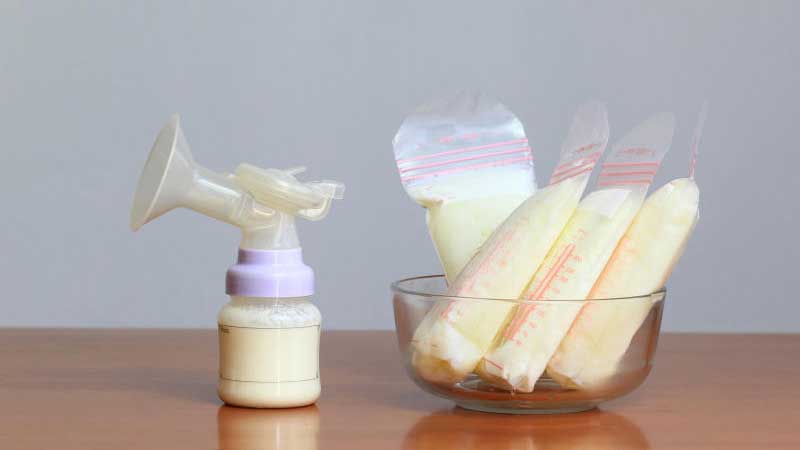
While wet nursing is not a new phenomenon among Kenyan societies, the concept of pooling milk together in a bank is.
Women from religious history would breastfeed the children of other women but this would be directly from the breast. Moses of the Bible times and Prophet Mohammed of the Quran both had wet nurses.
Kenya has tapped into this age-old practice with a mission to save a particular group of babies. The pooling of human milk is here with us.
This is in line with World Health Organisation (WHO) recommendations that “when a mother’s own breast milk is not available, the alternatives are either expressed breast milk from a donor mother or formula milk.”
First human milk bank
This is a reality as the first human milk bank in the region being set up in Kenya is almost complete, at the Pumwani Maternity Hospital.
The concept follows closely the blood bank model and targets newborns who for one reason or another cannot access the mothers’ milk. The decision to give human milk from the bank will be done through prescription by a doctor.
Some of the newborns targeted include pre-term babies and babies whose mothers for one reason or another cannot produce milk after birth.
The project is a partnership between the government and PATH, an international organisation working in health innovations.
Angela Kithua, the programme officer human milk banking at PATH, says that newborns are recommended for breastfeeding within the first hour after birth. “But research shows that 44 per cent of mothers are separated from their babies immediately after birth, thus denying them the critical first hour of breastfeeding,” says Kithua.
Apart from this, pre-term babies will benefit from this initiative bearing in mind that pre-term births are the leading contributors to neonatal mortality in Kenya. It is estimated that 188,000 babies are born prematurely in Kenya.
Kithua says: “Some of the mothers of premature babies are not ready to produce milk, which forces the babies to be put on formula milk or cow milk yet their gut is not fully developed for such; human milk will alleviate this scenario.”
Setting up the bank did not start today but has been a process. Kithua explains that the first stage involved research to understand public perception of such a venture.
“A formative assessment was conducted to find out the social view on human milk banking,” she says.
The findings of the assessment carried out in different parts of Nairobi found that nine out of 10 women were willing to donate breast milk to benefit other children.
The numbers however dropped to six out of 10 when the women were asked whether they would feed their children with milk from another mother.
The women were worried about diseases, mainly HIV. Kithua says there needs to be public education to change the perceptions.
“The public needs to know that there will be a series of stringent quality checks before the milk donated is banked,” says Kithua.
Last year, the Ministry of Health launched guidelines on screening of human milk in the Kenya Human Milk Banking Guidelines 2017.
The guidelines state: “All prospective donors are screened to ensure the safety and optimal quality of donor human milk. Privacy and confidentiality should be maintained throughout the entire process to protect the prospective donor.”
The potential donors will be screened for chronic illnesses and conditions even as their medical history is assessed. Some of the medical conditions that are tested include HIV, syphilis and hepatitis B and C.
The screening will not be limited to serological tests only but will also involve taking of current situation and past history of the user on alcohol and substance abuse; smoking, vaccination history; blood transfusions; general nutrition status; and tuberculosis infection. Once the donor passes all these checks, the milk is finally tested for microbes before it is approved for banking.
Dr Jackson Kioko, Director of Medical Services at the Ministry of Health, asserts that this is one of the best interventions to solve nutritional challenges among newborns who cannot access breast milk.
“Of all child health interventions, human milk has the greatest potential impact on child survival but sometimes the most vulnerable infants, particularly pre-term, low birth weight and critically ill infants, have no access or have insufficient access to their mother’s own milk due to a multitude of associated factors such as maternal illness, death, disability or delayed lactation,” says Dr Kioko.
WHO notes that 20 million infants are born with a weight of less than 2.5kg, with nine out of 10 of these in developing countries.
This predisposes them to growth retardation, infectious diseases and an increased probability of death during infancy and childhood.
The milk bank set up at Pumwani is almost complete with the lactation, pasteurisation and counselling rooms, and other essentials like clothes already in place.
Kithua says the process of bringing the pasteuriser is under way and that the project will start once all guidelines have been met.
 The Standard Group Plc is a multi-media organization with investments in media
platforms spanning newspaper print
operations, television, radio broadcasting, digital and online services. The
Standard Group is recognized as a
leading multi-media house in Kenya with a key influence in matters of national
and international interest.
The Standard Group Plc is a multi-media organization with investments in media
platforms spanning newspaper print
operations, television, radio broadcasting, digital and online services. The
Standard Group is recognized as a
leading multi-media house in Kenya with a key influence in matters of national
and international interest.











